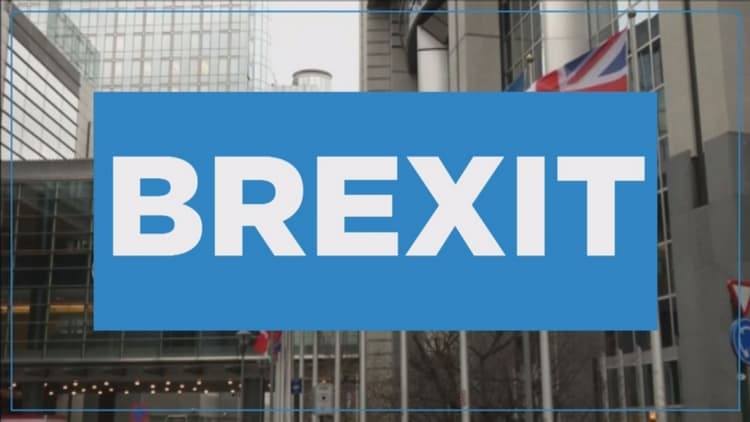




A sharp fall in sterling on Monday left the global investment community pondering what a British exit from the European Union would mean for a slew of different asset markets.
Cable - the sterling/dollar rate which is internationally traded in vast volumes - hit a seven-year low, surpassing the fall seen ahead of the Scottish independence referendum in 2014.
It came after a poll date was set for June 23 this year and some political heavyweights - including London Mayor Boris Johnson - threw their weight behind the "out" campaign.
CNBC highlights what an exit could mean for different asset markets.
More room for sterling?
Sterling slipped over 2 percent against the greenback on Monday to trade at around 1.4067 at midday London time. A close below 1.42 would open the way to further weakness, according to Kit Juckes, global head of foreign exchange strategy at Societe Generale.
"I think we are likely to see further sterling weakness ahead of the vote itself, as the debate rages and uncertainty undermines confidence," he said in a note Sunday.
"I expect to see GBP/USD break 1.40 and EUR/GBP break 0.80 between now and then – possibly both at the same time. On a 'Brexit' I'd look for GBP/USD to trade to 1.30, at least."
Shorting sterling against the Norwegian krone was his favorite trade currently, according to Juckes. Other analysts in the City of London were a little more coy on Monday morning. Sam Hill, fixed income strategist at RBC, said that "uncertainty is the only certainty" where the economics of Brexit is concerned and expected a "sensitive" exchange rate in the coming weeks.
Equity trades
The U.K. stock markets were a little harder to gauge Monday with a rally for the FTSE 100 on the back of strong global sentiment. Many economists will point to the fact that the benchmark is heavily weighted with Chinese-focused commodity firms and has little bearing on the U.K.'s economy.
Nonetheless, the market-watchers at broker Panmure Gordon have put together their preferred picks to navigate the coming months of political uncertainty. Looking at historical evidence, exposure to the rest of the EU and the benefits of a weak sterling, they believe that Centrica, Pearson, Rolls Royce, Prudential and Ashtead can provide safe havens.
Conversely, Sage, Hammerson, Carnival, Imperial and easyJet were most "at risk" for the same reasons, according to the company.
What about the debt markets?
Yields on U.K. 10-year gilts edged higher on Monday morning, but came amid a similar move for most sovereign bond markets. Peter Chatwell, an interest rate strategist at Mizuho International, admits that the main outlet for a "Brexit" risk would be sterling, but doesn't rule out a move in the bond markets.
"The macroeconomic impact (of a Brexit) would be lower growth over the short to medium term, but conditions for the Bank of England (BoE) to cut rates would not materialize," he said in a note Monday.
With the labor market remaining tight and significant inflationary forces from a dramatic depreciation of (sterling), the BoE may be faced with conditions to hike rates in 2017."
He added that these risks are currently "underpriced" in the 3 to 5 year part of the U.K. gilt curve.









